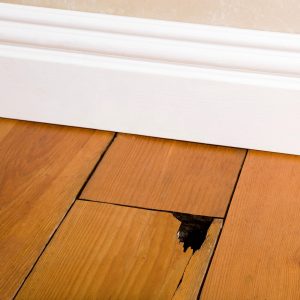How Humidity Can Affect Your Flooring
With record high temperatures being set around the globe, it’s important as homeowners to understand how this uptick in humidity can impact our homes, and how it can specifically affect our flooring. With proper consideration and care, you can help negate the humid climate appropriately and preserve your pristine surfaces! Here’s some valuable info on how humidity can affect your flooring.
What is humidity?
Humidity is simply the amount of water vapor in the air. As the temperature outside increases, the amount of water vapor in the air increases as well. Air from the environment inevitably comes inside our homes, but air conditioning and dehumidifiers can help reduce the temperature and evaporate the humidity of the air indoors.
For our floors, humidity can produce adverse effects if the styles we have are not equipped to handle moisture well. If humidity is not accounted for, some of the unfortunate results can include:
- Swelling – As the humidity rises, hardwood floors can experiencing swelling as they absorb moisture. If not contained or prevented, swelling will create pressure between the wood planks.
- Expanding & Contracting – High degrees of seasonal change, experiencing high humidity and then extreme dry winter weather, can cause a crowned look when warm and shrinking when cold. Wood floors and laminate floors are both susceptible to this phenomenon.
- Warping, Cupping & Cracking – This extreme result of swelling as a result of high humidity will greatly and negatively compromise the appearance of your floors. For most homeowners, it will signal the need to replace the current flooring.

When humidity levels rise, it becomes imperative to follow the manufacturer guidelines for cleaning your hard surface, especially when it comes to mopping or cleaning up spilled liquids. To prevent high moisture indoors and the opposite dry conditions, it’s ideal to maintain a 35% and 55% humidity level in your home. If you are in the market for new flooring, here are some of the best options to consider that will handle humidity effectively:
- LVT – Luxury vinyl is amazing at emulating realistic, gorgeous hardwood, but it will not absorb moisture like wood does. In fact, LVT can handle the moisture and humidity that kitchens, bathrooms, and basements will see!
- Porcelain Tile – Long used as a great fit for bathrooms and kitchen surfaces alike, porcelain tile is extremely moisture-resistant and cleans up incredibly easily making it a great fit to resist humidity.
- Engineered Hardwood – Hardwood lovers need not fret: whereas solid wood is not the perfect fit for humid climates, engineered hardwood is created with multiple layers to better resist moisture.
In the end, humidity does not mean you can’t have the look you crave: Get in touch online or speak with one of our flooring specialists at any of our retail locations today to explore the flooring options you love that will handle high temperatures and moisture with style and grace!


